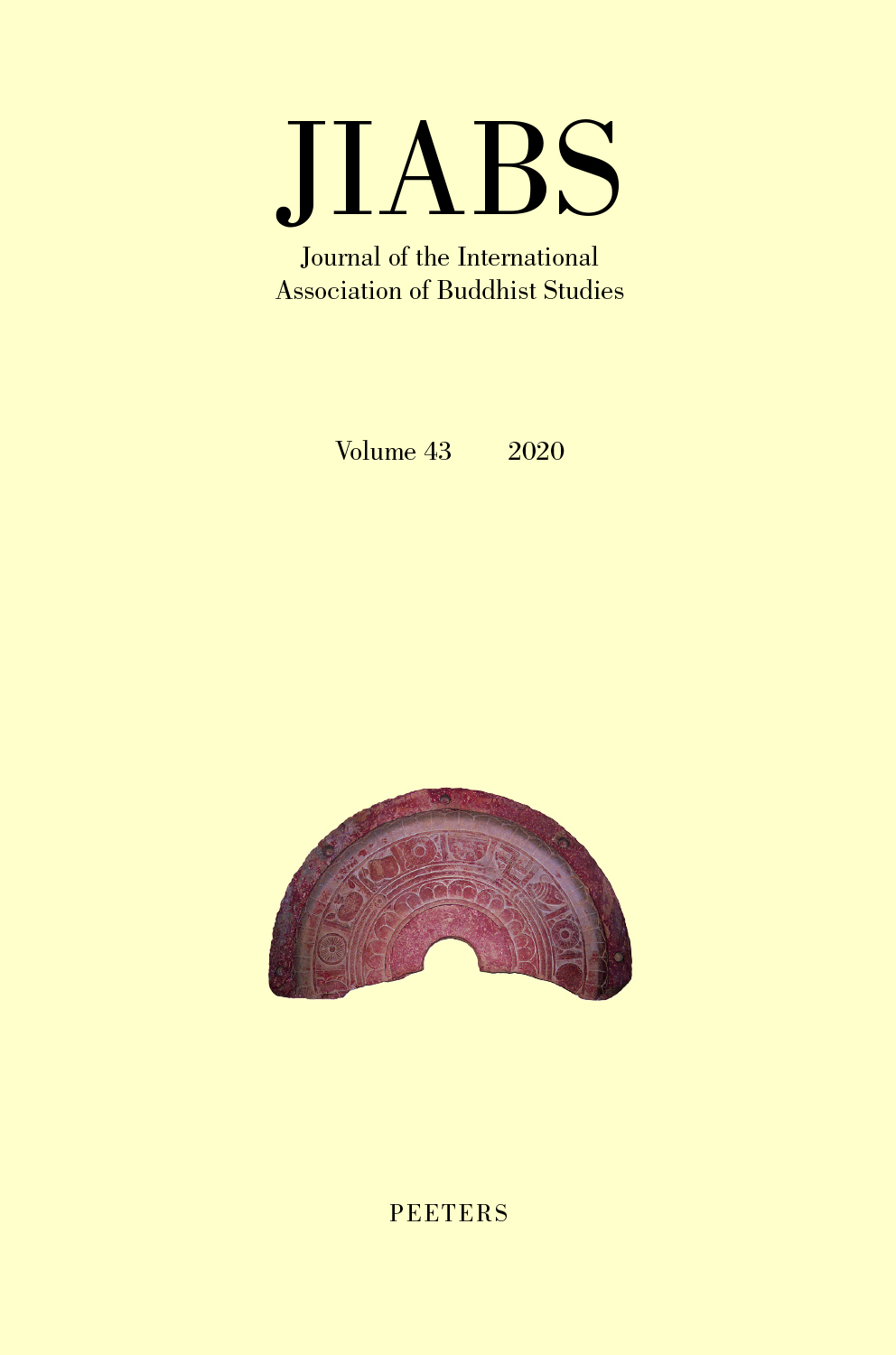 previous article in this issue previous article in this issue | next article in this issue  |

Preview first page |
Document Details : Title: Padma dkar po's (1527-92) Defence of Bka' brgyud Amanasikāra Teachings Author(s): HIGGINS, David Journal: Journal of the International Association of Buddhist Studies Volume: 39 Date: 2016 Pages: 429-485 DOI: 10.2143/JIABS.39.0.3200533 Abstract : The Sino-Indian debate hosted by the Tibetan emperor Khri Srong lde brtsan (Trisong Detsen) at Bsam yas monastery toward the end of the 8th century to decide the future of Buddhism in his country rekindled an age-old dispute: is the Buddhist goal of awakening (bodhi) best realized gradually through analytical meditation, as argued by the Indian contestant Kamalaśīla, or all at once through contemplating the nonconceptual nature of mind and reality, as proposed by his Chinese Chan counterpart Heshang Moheyan? Few scholars in the history of Buddhist thought have devoted more attention to clarifying the issues at the heart of the great debate than Padma dkar po (1527-92), Fourth ’Brug chen of the ’Brug pa Bka’ brgyud lineage. In this article I examine his responses to Sa skya Paṇḍita’s (1182-1251) influential critique of certain Dwags po Bka’ brgyud contemporaries who he accuses of promoting the same kind of blank-minded 'mental nonengagement' (amanasikāra) that had allegedly been advocated by Heshang at the Bsam yas debate prior to his ignominious defeat at the hands of Kamalaśīla. In defending Maitrīpa’s Mahāmudrā-based Amanasikāra doctrine as a valid system of exegesis (bshad lugs) and practice (sgrub lugs), Padma dkar po establishes how it is in line with authoritative Indian Madhyamaka and tantric amanasikāra teachings but diametrically opposed to the type of self-stupefying amanasikāra attributed to Heshang. A key to his defence is to argue for the compatibility between Kamalaśīla’s conceptualist interpretation of amanasikāra as a 'well-founded mental engagement' (yoniśo manasikāra) having emptiness as its object and Maitrīpa’s strongly nondual interpretation of amanasikāra as 'mental engagement having emptiness (a = emptiness + manasikāra) as its nature'. Though it may be argued that Padma dkar po here makes a significant concession to a representationalist strain of Cittamātra epistemology that had been rejected by Maitrīpa’s Apratiṣṭhāna (nonfoundationalist) Madhyamaka tradition, thereby blurring important differences between the two traditions, I argue that his compatibilist hermeneutic should be seen as a type of soteriological contextualism which aims to accommodate both perspectives by coordinating their respective soteriological roles and spheres of application. Such is the conciliatory thrust of his middle way: to combine the virtues of each approach while avoiding the vices of pursuing either as an end in itself. |
 |


